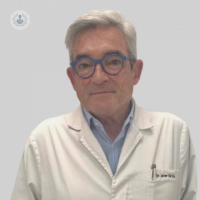Constipation and its treatment
Written by:It is considered that a person suffers constipation when the number of bowel movements is less than 3 per week. This situation can be accompanied by other signs or symptoms such as hard stools and small amount, feeling of incomplete evacuation or obstructive sensation or tamponade, which requires a lot of effort and even digital maneuvers to complete the evacuation.
When this situation continues for more than three months, we talk about chronic constipation. Most often, constipation is due to a functional colonic, rectoanal or pelvic floor disorder. But it can also be secondary to other metabolic diseases (diabetes, hypothyroidism), neurological (Parkinson's, spinal injuries) or be caused by organic lesions (colorectal cancer, stenosis, fissures, etc).
In other cases, constipation may be induced by certain pharmacological treatments : drugs that block calcium channels, opioids, anticholinergics, etc.. All this must be taken into account when making the clinical diagnosis.
Consequences of constipation
An important percentage of consultations for anal pathology (hemorrhoids, fissures) have an origin in chronic constipation problems. Other pathologies such as diverticular disease of the colon or rectal prolapse may be aggravated by constipation.
Get rid of constipation
Changing the habits of life is the first and most essential link in the treatment of constipation: avoid sedentary lifestyle with exercise or sport practiced routinely; increase the fiber content of the diet, based on fruits, vegetables and whole grains and increase the intake of liquids : water, juices, infusions and broths.

Treatment
There is a wide variety of pharmacological treatments that include agents that increase the volume of stool (plantago ovata), stimulant drugs (bisacodyl, senna), osmotic (magnesia, lactulose), lubricating substances and even probiotics.
The treatment differs according to whether the constipation is due to a motor or functional problem of the colon or if it is a defecatory disorder. In the first case, the increase in fiber can be complemented with osmotic drugs and in a second stage add stimulants.
The defecatory disorders respond very well to treatment with rehabilitation (Biofeedback) that teaches to coordinate relaxation with the effort necessary for defecation. In short, the pharmacological treatment will be applied in each case in a particularized way.
The laxatives
Treatment with laxatives should never be initially planned chronically. The best therapeutic scenario should be continuously sought for each patient. The abuse of laxatives can lead to undesirable situations that occur with involvement of the wall and the function of the colon and that can exacerbate constipation until it becomes intractable.
Therapeutic options for constipation
Surgery (colectomy) is exclusively reserved for very rebellious cases of medical treatment and with very specific indications. Currently, new techniques emerge, such as sacral neurostimulation , which, in the absence of more extensive research, is emerging as a future therapy. There are also new drugs whose use in this pathology is pending approval by the competent agencies.


